Catherine Whittle - MRes Experimental Neuroscience
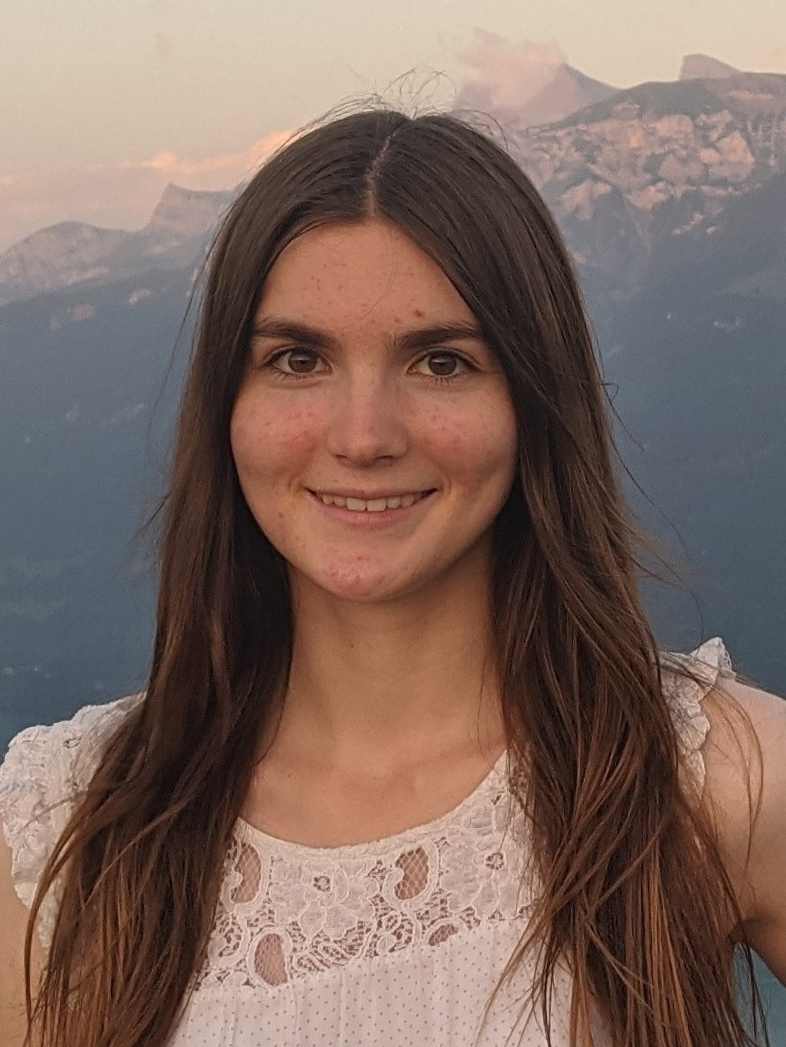 What did you most enjoy about your course?
What did you most enjoy about your course?
I most enjoyed having the opportunity to undertake three different laboratory projects (something that very few MRes courses offer), and thereby gain hands-on experience in varied disciplines and techniques across basic and translational neuroscience. I especially enjoyed my first project working on olfactory perception in sleeping flies and will be continuing to work with Drosophila for my PhD.
What did you most appreciate about Imperial College London?
I most appreciated the passion and dedication of the faculty members, post-docs, research assistants and PhD students who supported me during my research projects. I would particularly like to extend my sincere gratitude to Dr Giorgio Gilestro and Dr André Brown for their invaluable mentorship, which has significantly contributed to my growth as a scientist.
How did it feel to receive the Dean's Prize?
It felt lovely to see my hard work this past year be recognised!
What are you doing now or what do you plan on doing after graduation?
I have recently started a PhD at the MRC Laboratory of Molecular Biology, University of Cambridge (Jefferis Lab). My work investigates neural circuitry in the vinegar fly Drosophila melanogaster.
Yuqian Ye - MRes Experimental Neuroscience
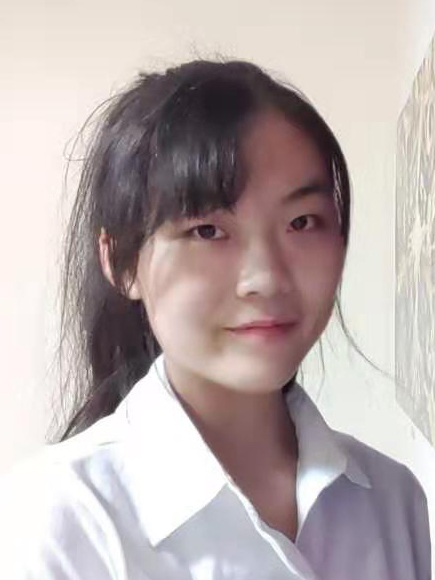 What did you most enjoy about your course?
What did you most enjoy about your course?
What I enjoy the most about my course was that we get to undertake three research projects to try out different fields of neuroscience research. I have found my passion for computational neurogenetics research through these projects.
What did you most appreciate about the Faculty/College?
The College has great computational resources including a powerful central HPC (High Performance Computing) that supports bioinformatics work.
How did it feel to receive the Dean's Prize?
I was genuinely surprised because there were many talented students in my course who were passionate about neuroscience research. I am grateful for having studied among them and receiving the prize was the icing on the cake.
What are you doing now or what do you plan on doing after graduation?
I am now a research technician in the Neurogenomics lab in the Department of Brain Sciences, where I completed two of my MRes projects. I am applying for PhD positions in the interdisciplinary field of neuroscience, genomics, and computational biology.
Richard Carr - MSc Translational Neuroscience
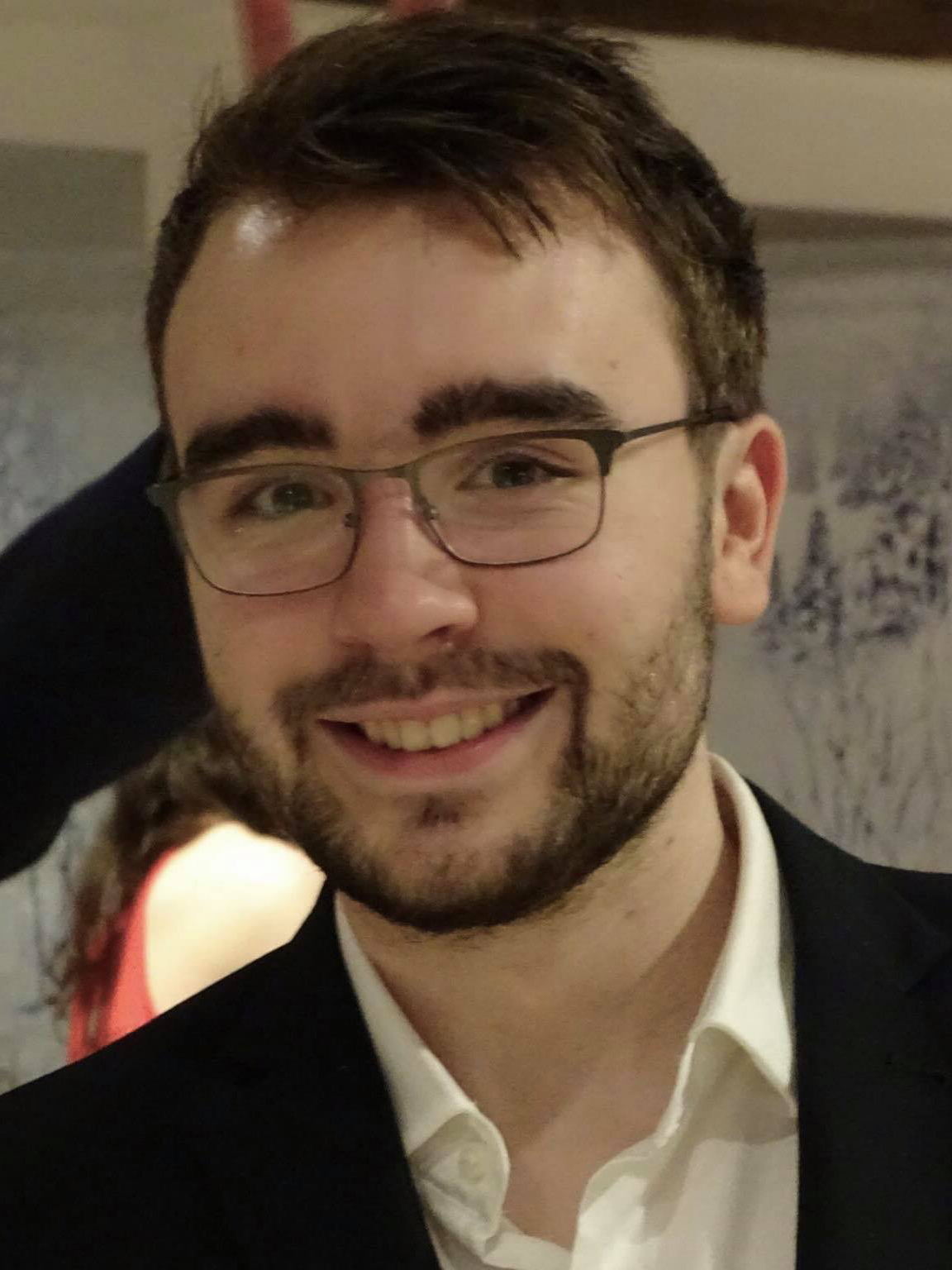 What did you most enjoy about your course?
What did you most enjoy about your course?
I thought the independence and freedom to focus on your own interests was great. Assignments gave you enough scope to tailor projects to what you're passionate about, while the guidelines encourage you to look at those interests from new perspectives. The course covered a lot of different areas in a short time, which means that although the work is often intense, by the end of the Programme you find that even if you started with a very specific interest in mind, you start to see how this can be approached from many different directions, each one giving its own insights. As a result, I left the course with a real appreciation for the scope and ambition of neuroscience as a discipline.
What did you most appreciate about Imperial College London?
I felt that the College appreciated what skills are important to develop in a scientist. Rather than focusing on rote learning, assessments covered lots of different skills that are needed in academia - e.g., presentation skills, critical analysis of papers, hypothesis generation. As such, you leave the course with confidence and a skillset that is really well-adjusted to a research career.
How did it feel to receive the Dean's Prize?
It was a great surprise! We had many talented individuals on the course who are really passionate about the work they do. I felt really honoured to receive the prize given the strong competition.
What are you doing now or what do you plan on doing after graduation?
I am now working as a clinical research fellow at the Institute of Psychiatry, Psychology and Neuroscience with Professor Oliver Howes. The team's work revolves around molecular psychiatry in schizophrenia and other psychoses, with a focus on neuroimaging and psychopharmacology. Next year I hope to start a PhD with the group looking at cognitive symptoms of schizophrenia and its relation to synaptic dysfunction.
Is there anything you would recommend to students starting out on the course?
My advice for new students is that the most important thing in research is genuine interest and curiosity. It pays off hugely to make a real effort to find an area that you are willing to dedicate your time and attention to.
Julia Borella - MSc Translational Neuroscience and President's PhD Scholar
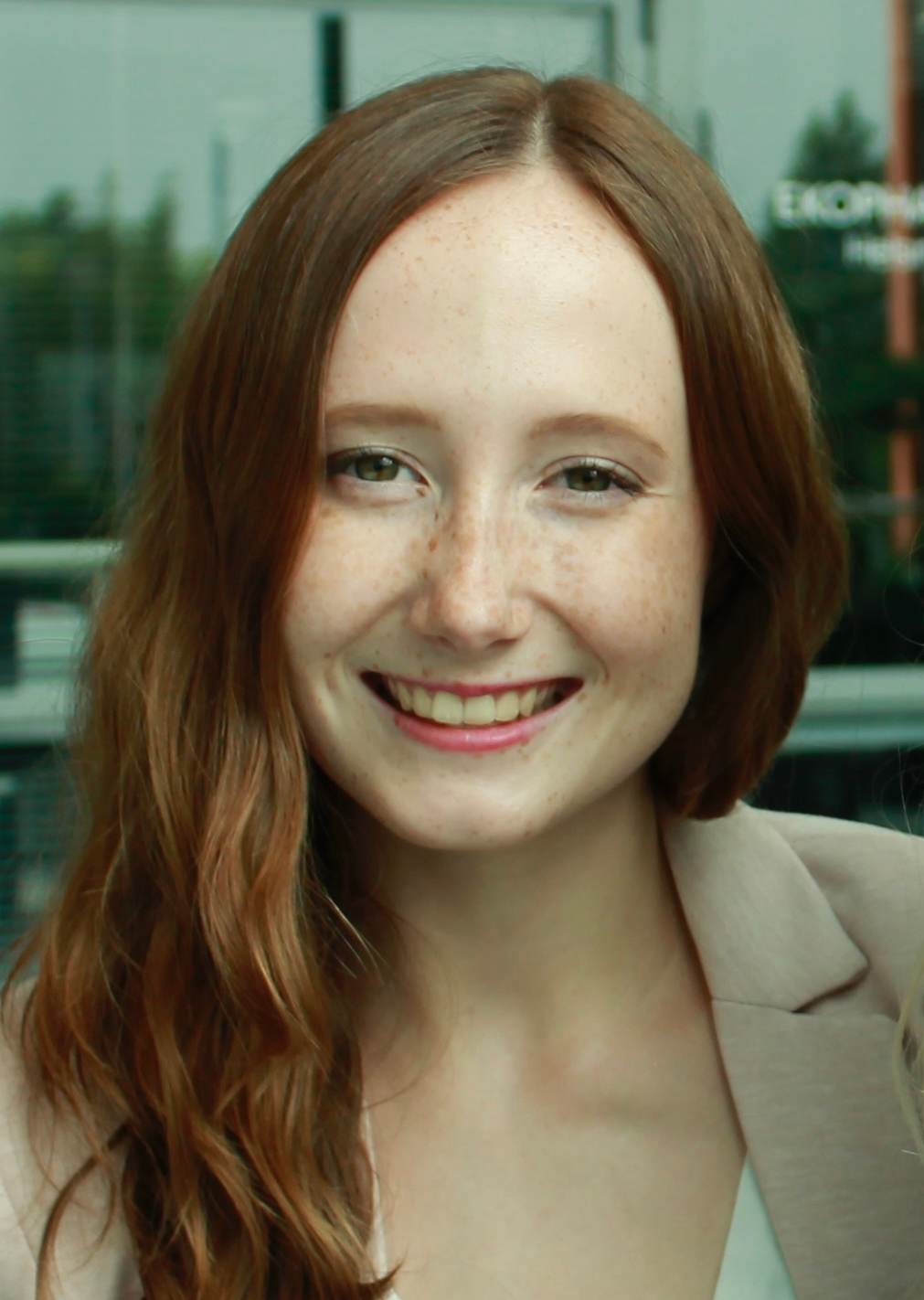 Why did you choose to apply to the MSc Translational Neuroscience at Imperial?
Why did you choose to apply to the MSc Translational Neuroscience at Imperial?
During my undergraduate degree in biomedical science, I fell in love with neuroscience. I’m particularly interested in understanding how things go wrong in neurodegenerative diseases and how we can develop better treatments. Due to my personal experiences, I was inspired to be involved in research that could have a direct and meaningful impact on the lives of people with dementia. I found that the MSc Translational Neuroscience was the perfect match with a combination of taught courses and a research project with a translational focus.
What was your favourite part of the course?
My favourite part of the course was the 6-month research project – I was grateful to have the opportunity to dive deeper into my area of interest and to be involved in cutting-edge research. I was highly impressed by the range of project types (including wet lab, computational and clinical) and topics available (ranging from psychedelics to dementia).
What was the topic of your research project?
I completed my MSc project on a clinical study of temporal interference brain stimulation in patients with early Alzheimer’s disease in Dr Nir Grossman’s laboratory at the UK Dementia Research Institute. In this project I gained valuable real-world experience delivering brain stimulation and cognitive assessments to patients and developed my skills in analysis of neuroimaging and cognitive data.
How did the programme impact your career and/or how do you think this programme will impact your career in the future?
The MSc programme opened the doors to translational neuroscience research for me. After completing my MSc project, I continued coordinating clinical studies of temporal interference stimulation as a Research Assistant for two years. I feel that the assignments in the MSc programme prepared me well for a career in research by developing key skills (such as critical thinking, data analysis and academic writing) while still allowing me the flexibility to focus on the topics that interested me most.
Do you have any words of advice to students starting the course?
My main piece of advice is to remember to maintain a healthy work-life balance, and to make time to enjoy life outside of studying too, to prevent burnout. Also, keep an open mind – initially, I lacked confidence in coding, but the computational neuroscience and machine learning modules ended up being my favourites and ultimately influenced the direction of my research!
What will be the topic of the PhD?
I will be investigating accelerated long-term forgetting (ALF) and whether a digital tool to measure ALF could be used in the detection of early Alzheimer’s disease, with Dr Christopher Butler. ALF is a phenomenon in which people may show normal learning and initial retention of information but show abnormal forgetting over a longer delay of days or weeks. Evidence suggests that ALF is one of the earliest cognitive manifestations of Alzheimer’s disease, but there is currently no standard and scalable test to measure it. With the increasing promise of disease-modifying treatments for Alzheimer’s disease, there is a real clinical need for reliable cognitive markers that are sensitive and specific to early disease.
What does the President’s Scholarship mean to you?
I’m incredibly grateful to have received the President’s PhD scholarship, because it has given me the freedom to pursue this tailor-made research project at a world-leading institution, which I otherwise would not have been able to do. Moreover, this unique project aligns perfectly with my interests and aspirations.
What are you looking forward to the most?
I am excited to work on an innovative and interdisciplinary project which has the potential to impact the lives of people living with dementia. I am also interested in digital health, so I look forward to further developing my skills in collecting and analysing large-scale, real-world data from a digital cognitive tool, as well as deepening my expertise in neuroscience.
Rhiannon Cummings - MSc Translational Neuroscience and now President's PhD scholar
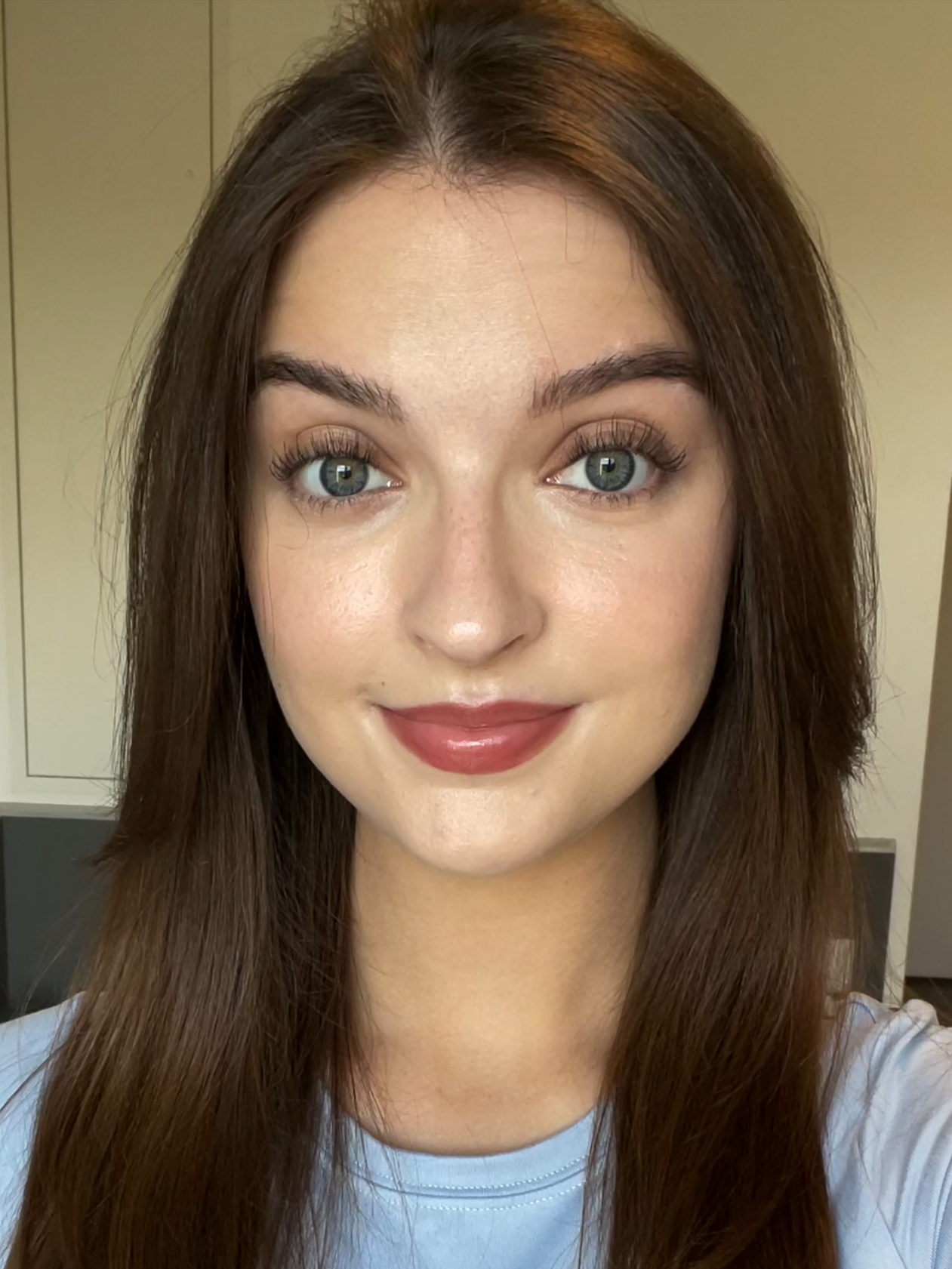 Why did you choose to apply to the MSc Translational Neuroscience at Imperial?
Why did you choose to apply to the MSc Translational Neuroscience at Imperial?
The MSc Translational Neuroscience course appealed to me specifically because of the wide range of modules covered. This programme had the perk of offering an initial taster of both computational and more wet lab-based neuroscience, before allowing you to then specialise in either of the two streams. Aside from the structure and content of the programme itself, I was drawn to Imperial’s reputation for research excellence and intensity, particularly in my field of interest (dementia research).
What was your favourite part of the course?
As someone who previously avoided coding at all costs, I certainly did not expect that I would have enjoyed the computational neuroscience module as much as I did. Although very intensive, this module took our cohort from overall inexperienced programmers to being able to code our own machine learning algorithms in two weeks! It was challenging, but I learnt a plethora of invaluable skills from this part of the course.
What was the topic of your research project?
My master’s research involved comparatively analysing the phenotypic and transcriptomic landscapes of two pathological astrocyte states: reactivity and stress-induced senescence.
How did the programme impact your career and/or how do you think this programme will impact your career in the future?
This programme introduced me to very wide range of neuroscience research; this allowed me to identify my desired area of specialty for PhD-level study. I was also extremely fortunate to be awarded the Dr Jean Alero Thomas master’s scholarship during my time at Imperial – receiving this prestigious award certainly enhanced my PhD applications, which has greatly shaped my future career trajectory. I enjoyed my time at Imperial so much that I have returned to undertake my PhD here!
Do you have any words of advice to students starting the course?
Don’t be afraid to lean on the other students in your cohort – group projects are a huge part of the MSc Translational Neuroscience course, and collaboration is so important in STEM! Also, be open-minded and give everything a go.
What will be the topic of the PhD?
My PhD project is delving deeper into the work I started during my master’s degree, its title is: The role of neurotoxic and neuroprotective astrocyte species in ageing and neurodegeneration.
What does the President’s Scholarship mean to you?
As a first-generation student, studying at a world-class university is an opportunity I never thought would have been available to me. As such, receiving the President’s PhD Scholarship came as a shock to me; it is an incredible honour. This scholarship has allowed me to continue contributing to this exciting area of dementia research, which I hope will one day make a valuable difference.
What are you looking forward to the most?
I am very much looking forward to returning to the Nativio lab to continue working with some of the most talented researchers I have ever come across.
Danielle Kurtin - MSc Translational Neuroscience
 Why did you choose to apply to the MSc Translational Neuroscience at Imperial?
Why did you choose to apply to the MSc Translational Neuroscience at Imperial?
When asking friends and colleagues for recommendations of a good place to pursue neuroscience, Imperial was consistently admired for the calibre of its education and research. Initially, I applied for the MRes, but given my biology (rather than neuroscience) background, I was encouraged to consider transferring my application to the MSc. That personal consideration of my application is an example of Imperial's exceptional nature, and the recommendation was spot on. I thrived in the MSc's balance between taught modules and research projects. The former developed my conceptual foundation of neuroscience, from which I could develop practical research skills. I liked that I could choose different streams within the course, and combined with the research project, felt like I could tailor my learning experience to my interests.
What was your favourite part of the course?
The research project I conducted with Dr. Lucia Li was by far and away the best part of my MSc experience. With Lucia's guidance I learned how to analyse functional Magnetic Resonance Imaging (fMRI) data. The clinically-relevant concepts I was learning, combined with the development of my neuroimaging and computational skillset, formed the backbone of my research approach.
How do you think the masters has helped you in your career?
Do you have any words of advice to tell potential applicant to the course?
Yes, I encourage you to try new things! I never dared to dream I would conduct computational research, but because I took a chance on learning how to code in the MSc, I unlocked what is now a massive part of my life. Imperial has abundant opportunities to explore, learn, and grow. Even if you don't think you'll be good at it, even if you're unsure you want to stick with it, regardless of whether it's directly related to your course or not, the pursuit of new knowledge, experiences, and skills is worthwhile.
Leire Garrdio Perez - MRes Experimental Neuroscience 2023-24
 Winner - Faculty of Medicine Deans Prize and Best Written Project Prize for the MRes Experimental Neuroscience
Winner - Faculty of Medicine Deans Prize and Best Written Project Prize for the MRes Experimental Neuroscience
What did you most enjoy about your course?
I really enjoyed the freedom my course provided to work on very different projects. Being able to do a clinical project, a data analysis project and a wet-lab project was a great opportunity to broaden my skillset and determine what aspects and types of research I enjoy the most.
What did you most appreciate about Imperial College London?
I most appreciate the opportunity to work alongside lead scientists worldwide in such cutting-edge research. I found this extremely motivating and inspiring.
How did it feel to receive the Dean's Prize?
At first I was surprised, but it was very gratifying to see the results of the hard work I put in throughout the year.
How did it feel to win the MRes prize for best written project and what did this project involve?
I was very happy to see that I had won the prize for the best written project, especially because it was for a project which I particularly enjoyed. My project involved investigating molecular changes during synaptic downscaling, a form of homeostatic plasticity. The PhD student who I was working with, Xingjian Wang, had optimised a protocol combining expansion microscopy with cyclic immunofluorescence to visualise relative molecular concentrations within individual dendritic spines. I really enjoyed this project; I learnt a lot about the considerations that were taken to design such a novel protocol and deepened my understanding of the importance of homeostatic plasticity for cognitive processes. I really enjoyed working with Dr Sam Barnes' group, they provided me with much support which I believe played a significant role in my success.
What are you doing now or what do you plan on doing after graduation?
I am currently working as a research assistant in the UCL Institute of Neurology, in the lab of Professor Robert Brownstone and Professor Marco Beato. We investigate dystonia, a movement disorder, using a mouse model recently developed by the lab.
Is there anything you would recommend to students starting out on the course?
I would personally recommend to try and diversify the projects you carry out, be it in the skills you will be employing, the field of research, or both. You rarely will have the opportunity to try out so many new things so make the most of it!
 Brianna Austin - MSc Translational Neuroscience
Brianna Austin - MSc Translational Neuroscience
Why did you choose to apply to the MSc course at Imperial?
I applied to the MSc in Translational Neuroscience because I became really curious about translational research during my undergraduate studies, specifically how neuroscience research can be applied to improve clinical outcomes. After researching various programmes, this course stood out for its clear balance of interdisciplinary teaching, blending molecular neuroscience, systems-level understanding, and computational approaches.
What was your favourite part of the course?
Surprisingly, my favourite part of the course was my research project. Coming into the programme with limited computational experience, I was initially apprehensive. However, the project allowed me to build and develop my skills in data science and machine learning, which I now find incredibly exciting. Also, meeting amazing people of the course who were pivotal to my success.
What was the topic of your research project?
My research project topic was titled “Investigating hierarchal control among functional networks disrupted by Opioid Use Disorder using effective connectivity”, supervised by Dr Danielle Kurtin. My research focused on using computational neuroscience and machine learning to better understand the differences in brain connectivity in people with opioid use disorder and healthy controls.
How did the programme impact your career and/or how do you think this programme will impact your career in the future?
The programme had a significant impact on both my academic development and career direction. It gave me the space to explore different areas of neuroscience, especially the computational side, which helped me discover my strong interest in data-driven approaches in brain research. The hands-on research experience, especially throughout my research project, allowed me to build technical skills I had not previously developed, and ultimately gave me the confidence to pursue a PhD. I am incredibly grateful for the academic and personal opportunities the MSc provided, and I am genuinely excited for the future as a neuroscientist!
Do you have any words of advice to students starting the MSc course?
Don’t be afraid to step outside your comfort zone and try something new, even if it feels intimidating at first. Imposter syndrome is incredibly common, and it’s something many of us experience, especially at institutions like Imperial. However, some of the most rewarding parts of the course may come from areas you didn’t expect. For me, it was taking on a computational research project with very little prior experience. I went from feeling unsure to discovering a genuine interest in data science and AI in healthcare. So be open, embrace the setbacks, and give yourself permission to be a beginner. You might surprise yourself with what you’re capable of.
What will be the topic of the PhD?
The topic of my PhD is investigating central insulin signalling in Traumatic Brain Injury using intranasal insulin as a functional probe. I aim to use neuroimaging techniques, combined with machine learning and computer vision approaches, to assess the neuroplastic reserve and better characterise the brain’s functional capacity following injury.
What does the President’s Scholarship mean to you?
The President’s Scholarship means a lot to me. It not only enables me to pursue my research goals in neuroscience at a world-class institution like Imperial, but it also represents something much bigger. As a first-generation immigrant, this scholarship gives me the chance to become the first person in my family to earn a doctorate. This kind of representation matters, and I hope my journey and awarding of the Scholarship can help show others from similar backgrounds that they belong in these spaces too. The scholarship gives me a chance to make a meaningful difference, not just in research science, but in inspiring others from underrepresented backgrounds to pursue higher education.
What are you looking forward to the most?
I am most looking forward to developing as a researcher. Specifically, exploring new methodologies and working alongside experts in the field. I am also excited about the opportunity to contribute to translational neuroscience research aimed at investigating brain function and neuroplastic reserve in patients with traumatic brain injury, all while being part of the supportive academic community here at Imperial.